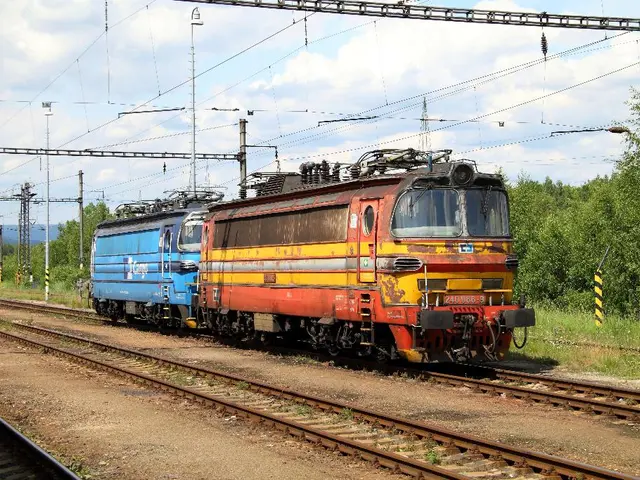The Big Push: Swabia's New Gas Line "Augusta" Amps Up Gas Supply in South Germany
Enhanced gas delivery in southern Germany through the Augusta pipeline. - Enhanced Gas Delivery in Southern Germany through Augusta Pipeline
Here's what you need to know about the new approximately 41-kilometer-long gas pipeline, nicknamed "Augusta," set to revolutionize natural gas supply routes in Bavaria and Baden-Württemberg. Bayernets GmbH, the operator, is investing around 180 million euros into this new transport line that's designed with the potential to be converted to hydrogen later on.
The construction of this new pipeline, which received the plan approval decision from the Swabia government in Augsburg, has been long-awaited to ensure the continued supply of natural gas in Southern Germany. The line will run from Wertingen in the district of Dillingen an der Donau to Kötz in the district of Günzburg, passing through ten other municipalities. The new steel pipe will be laid parallel to an existing underground gas line. The future line is necessary for increased network stability and thus secure gas supply in Southern Germany.
The "Augusta" pipeline is intended to connect new gas power plants and Baden-Württemberg to existing gas storage facilities in southern Bavaria and the Salzburg region. Considering that the development of gas infrastructure is a critical factor in providing future generations with stable energy supplies, this pipeline is effectively a key stepping stone.
The project has been in the works for years and is part of the nationwide gas network development plan. Bayernets, a company that operates a gas pipeline network in Bavaria approximately 1,660 kilometers long, is behind this ambitious endeavor. Bayernets is owned by the municipal utilities of Munich and Augsburg, as well as the supplier Bayerngas, with other municipal companies also involved.
Why Southern Germany Needs This New Pipeline
- Securing Energy Supply: The new pipeline will help maintain a steady natural gas supply in Southern Germany, ensuring that industries and residents have a consistent energy source.
- Strengthening Network Stability: By adding a new pipeline, the network will become more robust, providing enhanced reliability in gas delivery.
- Reducing Environmental Impact: Modern pipelines incorporate advanced technology to minimize environmental impact, reducing potential ecological concerns related to construction and operation.
- Boosting Economic Growth: A stable natural gas supply can help industries in Bavaria and Baden-Württemberg by maintaining affordable energy costs, fostering economic growth in the region.
Although the specific details of the pipeline in Swabia have yet to be fully divulged, it's clear that its construction will pave the way for future-proofing the energy supply infrastructure in Southern Germany. For more information about this exciting project, keep an eye on official announcements from the relevant authorities or energy companies involved.
- The new "Augusta" gas pipeline, designed for potential hydrogen conversion, is part of a larger employment policy in the renewable-energy industry, as it will provide employment opportunities during the pipeline's construction and maintenance phases.
- In the realm of finance, investments in projects like the "Augusta" pipeline will contribute positively to the economy of Southern Germany by creating jobs in the construction, engineering, and energy sectors, driving economic growth and industry development.








